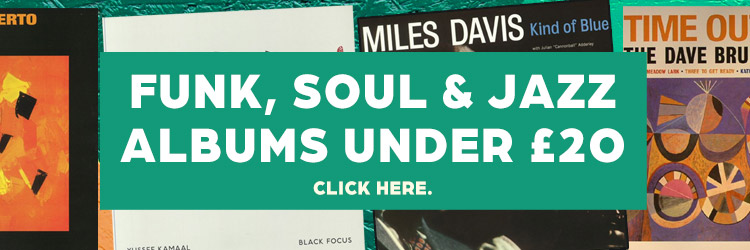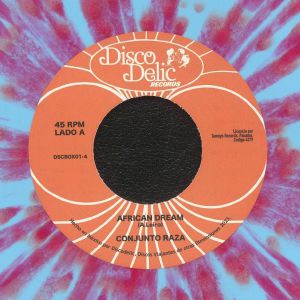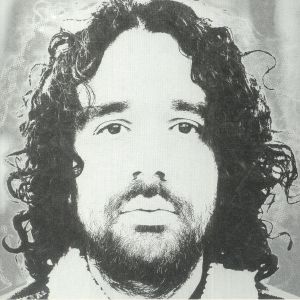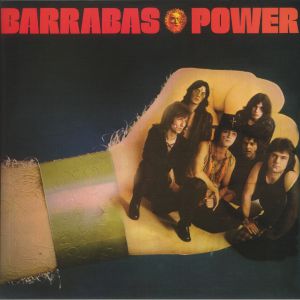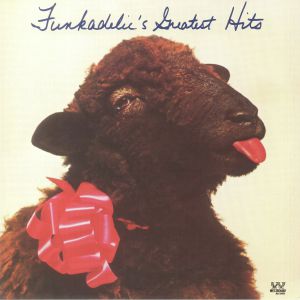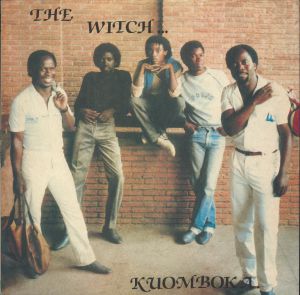Back catalogue: Funk
Juno's full catalogue of Funk
Singles
African Dream (blue & pink splattered vinyl 7" + insert limited to 100 copies)
Cat: DSCBOX 1 4 COLOUR. Rel: 08 Oct 24
Review: The Scepters, formed in 1967 in Paraiso by guitarist Celso Spencer, were a popular Panamanian band known for their energetic performances across military bases and high school dances in the Canal Zone. Alongside Lionel Best and Jose James, they covered Top 40 hits and iconic rock bands like Santana and Jimi Hendrix. They released two 45s, including 'Message,' which debuted at Panama's first National Soul Music Festival in 1971 and features next here to a jam from Conjunto Raza, another project led by Agustin Leiro, this one with rotating musicians. They released a single 45 on Onda Nueva in the mid-70s and it blends Zonian and Panamanian talent with aplomb.
… Read morePlayed by: Mukatsuku Records Chart
in stock $25.36
Review: Caito Sanchez lives in New York but was born in Panama and is a dedicated drummer who has spent years as a sideman. He's been honing his craft since the early 2000s and has played with the likes of Charles Bradley, Lee Fields and Brian Jackson. Now he finally makes the big step of going it alone and this debut single shows what he is capable of. He takes care of drums, but also bass, guitar and lead voice on a pair of nuggets that are heavy and psychedelic Spanish rock tunes full of fresh new wave sounds.
… Read morein stock $15.43
Albums
Review: Spanish funk-rock group Barrabas formed in the 70s and had big success through that decade and the next. Drummer and producer Fernando Arbex lead the band and fomented a fusion of Latin rock and jazz-funk initially, before moving into a more disco orientated sound later on. Power was the band's second album and it came in 1973 with country-tinged tunes such as 'Boogie Rock', high speed funk workouts like 'Keep On Moving' and then more jazzy library sounds such as 'The Horse.' The second half of the album touches on busy dance floor funk like 'Casanova' and more stripped back and deep cuts like 'Children.'
… Read more in stock $26.21
Review: This is a first-ever CD-reissue of legendary funk outfit Funkadelic's Greatest Hits album - known amongst fans as 'the sheep album' - from back in 1975. It came on Westbound and has plenty of the most enduringly iconic tunes as one of George Clinton's group's most iconic covers in a catalogue full of them. The tracks here are taken from the band's first six albums and features 45 mixes, LP mixes and an edit of the instrumental 'A Joyful Process' which has never before been reissued. The whole thing has been remastered as the original was known for being a little thin in the low end.
… Read morePlayed by: Juno Recommends Funk
in stock $20.28
Uganda: Dawn Of Rock (reissue) (LP with obi-strip)
Cat: MRBLP 239B. Rel: 14 Feb 24
Review: Uganda: Dawn Of Rock is a great collision of creative talents from Akira Ishikawa and Count Buffaloes who combine to deliver a captivating exploration of rock music's emergence in Uganda. A classic since it was first issued, the album showcases Ishikawa's masterful drumming and Count Buffaloes' dynamic instrumentation. It overflows with infectious rhythms and soulful melodies and each track immerses listeners in the vibrant music scene of Uganda where rock and local African sounds are fused into something new. As such this is a record that offers a perfect glimpse into a pivotal moment in Uganda's musical history.
… Read morePlayed by: Juno Recommends International
in stock $26.77
MURO / VARIOUS
Diggin' Victor: Deep Into The Vaults Of Japanese Fusion/AOR For Vinyl Selected By Muro (2xLP + insert with obi-strip)
Cat: FWRF 012. Rel: 08 Apr 25
Review: Renowned DJ and selector MURO is a Jedi-level compiler and this new collection of his delves into Victor's extensive archives to spotlight a world of Japanese jazz, fusion and AOR. It take sin plenty of internationally known names like Yasuko Agawa on the sunset sounds of 'L.A. Night', Sadistics who offers the more psyched out guitar leans of 'On the Seashore', Yuji Ohno's neo-Balaeric bliss-out 'The Dawn of Seychells' and Hiroshi Fukumura's soul soothing Ry Ayres-style melodies on 'White Clouds.' These are luxurious sounds and timeless tracks with MURO's signature funky perspective making this a brillaint choice for brighter, warmer days.
… Read morePlayed by: Mukatsuku Records Chart, Juno Recommends Funk
in stock $69.04
Review: Zamrock, anyone? Often stylised as W.I.T.C.H, WITCH were one of the leading musical lights of post-colonial Zambia, a band that rose to prominence during the early-1970s, a particularly fertile period in the East African nation during which hopes for the future were incredibly bright. Independence leading to the blossoming of homespun ideas, culture, art and creativity. The story takes a tragic turn as the decade reached its final years, the economy collapsing and policymakers turning increasingly authoritarian. Like many in the 'scene', WITCH would fade, almost into obscurity, although the psychedelic rock-hued legacy they left survived, and then experienced a resurgence from 2012, when they reformed amid renewed interest. Kuomboka represents the group at the height of their fame, an album that still sounds packed with optimism, despite insidious changes in the air when it landed in 1976.
… Read morePlayed by: Juno Recommends Funk
in stock $29.03

 USD
USD





